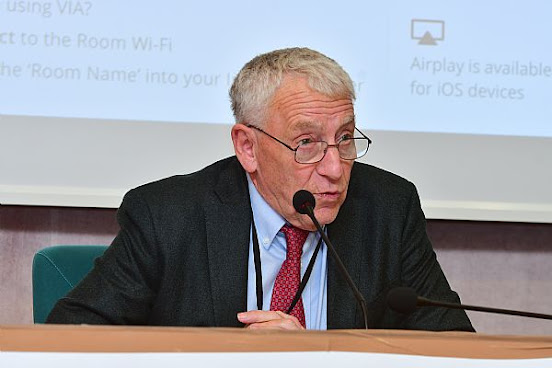Rorate is pleased to offer a translation of a message from Christian Marquant and we give thanks to God for his recovery from hospitalization with Covid.
Our Wishes for the Year of Our Lord 2022
Paix Liturgique, Letter 842, January 3, 2022
Dear Friends,
May the freedom of the traditional liturgy come! This is the wish of Paix Liturgique for the year 2022. It may seem utopian or very wilful to you to hear me say this, bruised as we are by the persecutions that have been raining down on us again since this summer.
But all this will last only for a short time, even if it is very painful to live through it. The defenders of the liturgical revolution, which has oppressed the Church for half a century, are fighting their last battle: they have potentially lost, even if they still seem very strong, because not only have they not been able to make us disappear despite all their efforts, but we are now more numerous and alive than ever, while their ranks and places of worship are thinning out.
I form this wish, together with the whole Paix Liturgique team, first of all for those who make use of this traditional liturgy, and also for all Roman Catholics and for the entire Church, which, when it begins to recover from the terrible crisis that has overwhelmed it, will do so first of all by rediscovering this cultic treasure that has been preserved as a living reality.
I hope that this holy and venerable liturgy, which was generated by Rome our Mother, and which therefore cannot be tainted by error, will continue to produce, for the times in which we live, the fruits it has dispensed from century to century and from generation to generation:
- Fruits of growth in faith for those who practice this most pure law of prayer;
- Fruits of a call to holiness in the faithful, priests, and religious;
- Fruit of vigor in preaching and catechesis, of which this traditional Roman cultus is the backbone;
- Fruit of stimulating the missionary outreach to our contemporaries—especially the young people that this worship attracts—to help them to find or to rediscover the religion of Jesus Christ;
- Fruits of reform—of a true reform such as were the Gregorian reform and the Tridentine reform, the like of which the Church today impatiently awaits;
- Fruits of the cultivation of priestly and religious vocations to come to the rescue of the deserted and waterless land that is our society;
- Fruits also of support for a Western civilization in grave danger, for which this Roman worship represents a religious and cultural treasure;
- Finally, political fruits, I dare say, since this liturgy of Christendom is able to spiritually energize the small remnant of the faithful in the formerly baptized but now apostate Christian nations.
In the catastrophic situation of a Church that seems to be disappearing in the midst of secularized societies, I hope that the eyes of those pastors who have become persecutors of their flock will be opened: more than ever, the Church of Christ needs all of its living forces.
And in any case, I hope that the new tyrannical Roman dispositions will be put on hold by the other pastors who are aware of their duties; that there will be many diocesan bishops who understand that peace is too precious a good to be gratuitously jeopardized; and that the bishops who are friends of the Tridentine liturgy will continue to help the faithful, the priests, and the communities that live by it, especially in matters of ordinations.
I wish that all priests and communities who celebrate the traditional liturgy continue to do so, distributing all the sacraments in the traditional form as usual for the greater glory of God and for the good of souls.
But above all, I hope that, as soon as possible, the upper hierarchy of the Church will take a different path and decide to let everything that lives and bears fruit develop freely in the Church, especially the Tridentine liturgy and the lex orandi that it represents. Not freedom to do just anything, but freedom to do what is good: the very freedom of the Church is at stake.
These vows are so many prayer intentions that we will raise to heaven with urgency during this time of the feast of the Incarnation, and also every day of the year.
Finally, I would like to add a personal expression of thanks to all those who have supported me with their prayers during these last weeks in my serious health problems. With them, and to the Lord first of all, I give thanks, for Whose service and together with you I will continue to devote all my strength, as it returns to me, in the good fight for liturgical peace.
Christian Marquant
